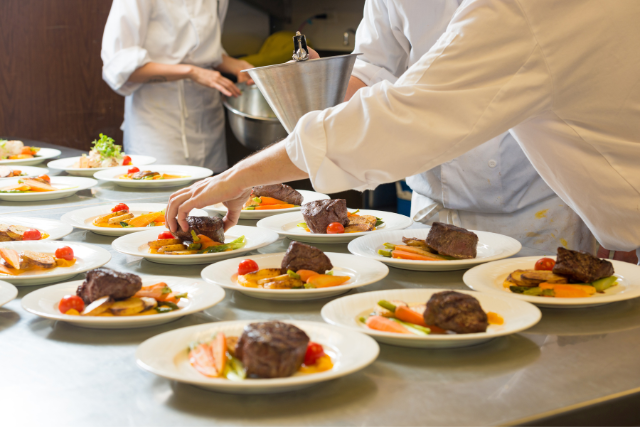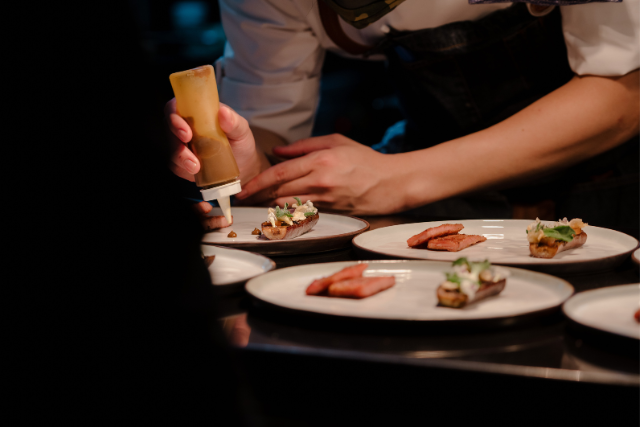
Sustainability in the food industry is a necessity. Climate shifts, supply chain disruptions, and rising demand for transparency have changed the landscape. From sourcing ingredients to managing kitchen waste, food businesses are under pressure to operate more responsibly at every level.
Tackling these challenges takes skill. You need technical training, a systems mindset, and the ability to make decisions that align with business needs and environmental impact, which formal education provides. Programs at culinary schools like CCA Manila teach students how to run efficient, ethical kitchens that can handle real-world demands.
Here’s how a solid culinary education can help you build a food business that lasts economically and environmentally.
It Starts With Knowing How Food Works
You can’t make smart decisions about waste, efficiency, or sourcing without understanding ingredients and processes. Culinary training teaches how different foods behave under varying conditions such as heat, moisture, and storage, and how those reactions affect yield, texture, shelf life, and nutrition.
A formal cooking course introduces this depth early. From day one, you learn to work with what’s available, adjust recipes by season, and plan around real-world limits like space, timing, and prep flow.
Systems Thinking Is a Core Skill
Running a sustainable food business means balancing flavor, workflow, and responsibility. That takes training, not guesswork. A structured culinary class teaches you to understand the kitchen as a system. Labor, equipment, menu planning, and sourcing all influence outcomes.
This approach leads to smarter sourcing. You learn to evaluate ingredients by trend or cost, transportation impact, local availability, and supplier practices. These choices strengthen your supply chain and add transparency for your customers.
It also matters in daily operations. Planning for batch cooking, cross-using ingredients, and handling prep waste can improve efficiency and reduce carbon footprint.
Menu Engineering and Portion Control
Sustainable menus are planned with purpose. They focus on efficiency, reduce excess, and maximize ingredient use. That level of structure comes from training, not guesswork.
Culinary programs teach portion control, accurate costing, and choosing ingredients that serve more than one role. These skills help reduce spoilage, prevent over-ordering, and improve consistency. With a well-structured menu, even small kitchens can stay flexible without creating waste or overworking the team.
It also strengthens transparency. A clear understanding of your offerings makes it easier to label allergens, explain sourcing, and speak confidently about your food’s impact. That clarity adds long-term value.
Managing Labor Without Burnout
A sustainable business supports its team as much as its sourcing. Kitchen work is intense, and high turnover creates inconsistency and added training costs. Culinary training helps future business owners understand how to lead teams effectively.
You learn how to delegate, organize shifts, and set clear standards. That reduces confusion, burnout, and unnecessary repetition. When everyone understands the process and purpose behind daily tasks, the kitchen runs more safely and efficiently.
Working With Seasonality and Supply Chains
Sourcing locally isn’t enough to make a food business sustainable. You need the ability to adjust. Culinary training builds the skills to work with what’s available instead of relying on ingredients that may be inconsistent or impractical. Flexibility matters, especially when supply chains shift.
A diploma in culinary arts gives you the foundation to make smart substitutions. When certain vegetables are out of season, you know how to replace them without compromising flavor or function. When a supplier changes terms, you can replan prep without losing operational control.
Food Safety and Compliance
Sustainability in the kitchen only works when safety is part of the system. Reducing waste and improving efficiency mean little if hygiene standards are overlooked. Culinary training reinforces the link between environmental responsibility and food safety through lessons in sanitation, cross-contamination prevention, and proper storage. These skills make it easier to build compliant and environmentally sound daily routines.
Culinary Courses That Support Sustainable Food Business Skills

Professional Chef Plus
Focused on core culinary techniques, Professional Chef Plus combines practical kitchen training with structured theoretical lessons. The program emphasizes discipline, time management, and clear kitchen workflows. Students learn to manage ingredients carefully, reduce waste, and work within tight prep windows—skills directly supporting sustainable operations. It builds habits that improve efficiency without cutting corners, preparing learners for the pace and pressure of real food service environments.
Fundamentals in Culinary Arts
With an emphasis on foundational skills, Fundamentals in Culinary Arts is designed for newcomers, early-stage entrepreneurs, and professionals looking to strengthen their approach. The course develops smart prep habits, better portion control, and efficient ingredient use. Students are encouraged to think practically about supply, storage, and planning. The training helps establish daily practices that support sustainability in small kitchens or startup food ventures.
Diploma in Culinary Arts and Technology Management
Geared toward future leaders, the Diploma in Culinary Arts and Technology Management equips students with culinary proficiency and operational insight. It covers everything from advanced cooking methods to team management, menu development, and systems thinking. Students learn to run cost-efficient, environmentally aware, and operationally sound kitchens. The focus on long-term planning and adaptability makes the program especially relevant for those building scalable, sustainable food businesses.
Build Smarter Kitchens with CCA Manila Training
A sustainable food business runs on structure, not slogans. It involves real systems, real limits, and decisions that carry weight. Without proper training, those pressure points turn into risks.
Studying culinary arts gives you the tools to manage those risks early. At CCA Manila, sustainability is part of how kitchen systems are taught—from sourcing and prep to labor and operations.
Ready to train for the food business you want to build? Apply now and start with the structure that makes long-term success possible.
